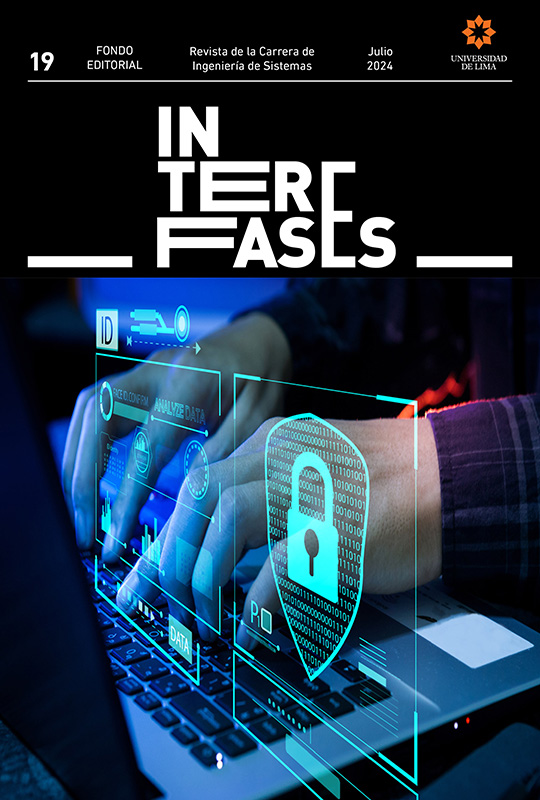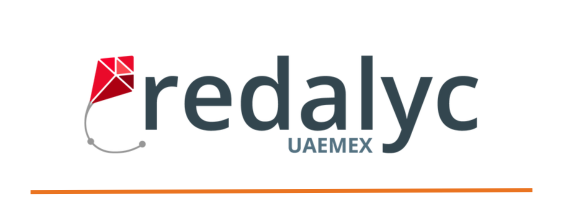Knowledge management as a strategic innovation tool in organizations. An integrative review
DOI:
https://doi.org/10.26439/interfases2024.n019.7114Keywords:
organization, knowledge management, innovationAbstract
The article investigates Knowledge Management (KM) as a strategic tool to foster innovation within organizations. The study focuses on how KM can be used to enhance competitiveness and organizational effectiveness through innovation. Using an integrative review methodology, the research identified 13 main categories of investigation in the current literature, highlighting the interrelationship between KM and various organizational aspects such as competitiveness, strategy, innovation, and learning. The central problem of the study questions how KM has been applied as a strategic tool for effective innovation management, while the general objective is to analyze the role of KM in promoting innovation within organizations, aiming to achieve competitive advantages and better market positioning. The research was conducted through an integrative review, analyzing various academic publications to assess how KM is approached in terms of strategic innovation. The publication excerpts range from 1990 to 2023, selected based on their relevance to knowledge management and innovation. The results indicate that organizations focused on KM achieve better innovation outcomes, directly impacting their performance. The findings emphasize the need for strategic knowledge management to promote continuous innovation. The study contributes to the understanding and integration of KM as a catalyst for innovation and organizational strategy, creating an environment conducive to the development of new ideas and continuous improvements.
Downloads
References
Abbas, J., Zhang, Q., Hussain, I., Akram, S., Afaq, A., & Shad, M. A. (2020). Sustainable innovation in small medium enterprises: the impact of knowledge management on organizational innovation through a mediation analysis by using SEM approach. Sustainability, 12(6), 2407. doi:10.3390/su12062407.
Adams, G. L., & Lamont, B. T. (2003). Knowledge management systems and developing sustainable competitive advantage. Journal of knowledge management, 7(2), 142-154.
Alasoini, T., Heikkilä, A., Ramstad, E., & Ylöstalo, P. (2007). Consulta como nova forma de coletar informações no Programa Tykes: Resultados preliminares. Workpolitical Journal, 2(2007), 55-71.
Bardin, L. (1977). L'analyse de contenu (Vol. 69). Paris: Presses universitaires de France.
Barbieri, J. C., & Alvares, M. A. (2004). Gestão da inovação: Conceitos, processos e ferramentas. Atlas.
Brown, J. S. (1999). Sustaining the ecology of knowledge. Leader to leader, 12(12), 31-36.
Cervo, A. L., & Bervian, P. A. (2002). Metodologia científica. 5aed.
Costa, J., Pádua, M., & Moreira, A. C. (2023). Leadership styles and innovation management: What is the role of human capital? Administrative Sciences, 13(2), 47.
Creswell, J. W., & Creswell, J. D. (2017). Research design: Qualitative, quantitative, and mixed methods approaches. Sage publications..
Davenport, T. H., & Prusak, L. (1998). Working knowledge: How organizations manage what they know. Harvard Business Press.
Easterby-Smith, M., & Lyles, M. (2003). Re-reading Organizational Learning: Selective memory, forgetting, and adaptation. Academy of Management Perspectives, 17(2), 51-55.
Fioravanti, V. L. S., Stocker, F., & Macau, F. (2023). Knowledge transfer in technological innovation clusters. Innovation & Management Review, 20(1), 43-59.
Fitriati, T. K., Purwana, D., & Buchdadi, A. D. (2020, July). Dynamic capabilities and SMEs performance: The mediating effect of innovation (Study of SMEs in Indonesia). In 1st International Conference on Science, Health, Economics, Education and Technology (ICoSHEET 2019) (pp. 457-464). Atlantis Press.
Gil, A. C. (1991). Como elaborar projetos de pesquisa. Editora Atlas SA.
Jha, P., & Karn, B. (2019). Knowledge managements’ relevance in supply chain management process of Indian e-commerce companies. International Journal of Recent Technology and Engineering, 8(3), 1797-1805.
Jennex, M. E., & Zyngier, S. (2007). Security as a contributor to knowledge management success. Information Systems Frontiers, 9, 493-504.
King, W. R. (2007). A research agenda for the relationships between culture and knowledge management. Knowledge and process management, 14(3), 226-236.
Lacombe, F., & Heilborn, G. (2005). Princípios e tendências. São Paulo: Editora Saraiva.
MACEDO, M., SILVA, T., DE LUCA, M. D. S., FARIA, S., & COELHO, T. (2010). Gestão do conhecimento.
March, S. T., & Smith, G. F. (1995). Design and natural science research on information technology. Decision support systems, 15(4), 251-266.
Nonaka, I. (1997). Criação de conhecimento na empresa: como as empresas japonesas geram a dinâmica da inovação. Elsevier.
Polyakov, M., Khanin, I., Shevchenko, G., & Bilozubenko, V. (2023). KNOWLEDGE MANAGEMENT IN INTERNATIONAL COMPANIES: SPECIFIC FEATURES AND INFORMATION TOOLS. Financial & Credit Activity: Problems of Theory & Practice, 3(50).
Pompeo, D. A., Rossi, L. A., & Galvão, C. M. (2009). Revisão integrativa: etapa inicial do processo de validação de diagnóstico de enfermagem. Acta paulista de enfermagem, 22, 434-438.
Quinn, J. B. (1992). Intelligent enterprise: a knowledge and service based paradigm for Industr. Simon and Schuster.
Raupp, F. M., & Beuren, I. M. (2006). Metodologia da pesquisa aplicável às ciências. Como elaborar trabalhos monográficos em contabilidade: teoria e prática. São Paulo: Atlas, 76-97.
Starkey, K. (1997). Como as organizações aprendem. São Paulo: Futura, 376-396.
Takeuchi, H., & Nonaka, I. (2008). Criação e dialética do conhecimento. Gestão do conhecimento, 12, 17-38.
Toffler, A. (1990). Powershift: knowledge. Wealth and Violence at the Edge of the 21st Century.
Whittemore, R., & Knafl, K. (2005). The integrative review: updated methodology. Journal of advanced nursing, 52(5), 546-553.
Wiig, K. M. (1994). Knowledge management foundations: thinking about thinking-how people and organizations represent, create, and use knowledge. Schema Press, Limited.
Valentim, M. L. P., Coneglian, A. L. O., Fadel, B., Santos, C. A. D., Almeida, C. C. D., Moraes, C. R. B. D., ... & Guaraldo, T. D. S. B. (2010). Gestão, mediação e uso da informação. Cultura Acadêmica.
Downloads
Published
Issue
Section
License
Authors who publish with this journal agree to the following terms:
Authors retain copyright and grant the journal right of first publication with the work simultaneously licensed under an Attribution 4.0 International (CC BY 4.0) License. that allows others to share the work with an acknowledgement of the work's authorship and initial publication in this journal.
Authors are able to enter into separate, additional contractual arrangements for the non-exclusive distribution of the journal's published version of the work (e.g., post it to an institutional repository or publish it in a book), with an acknowledgement of its initial publication in this journal.
Authors are permitted and encouraged to post their work online (e.g., in institutional repositories or on their website) prior to and during the submission process, as it can lead to productive exchanges, as well as earlier and greater citation of published work (See The Effect of Open Access).
Last updated 03/05/21






